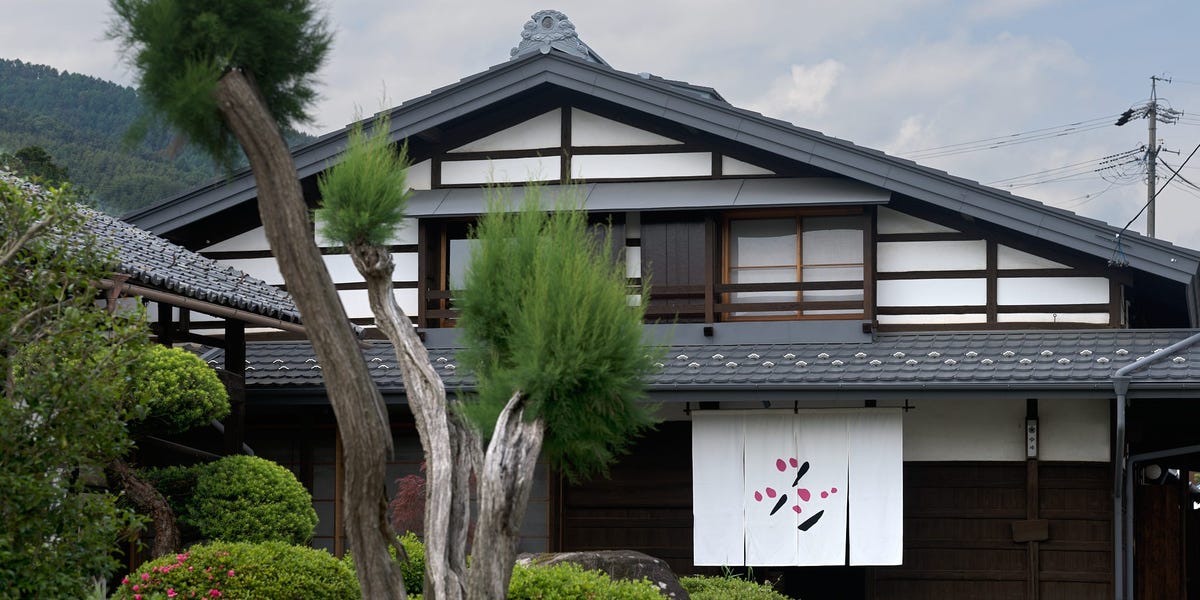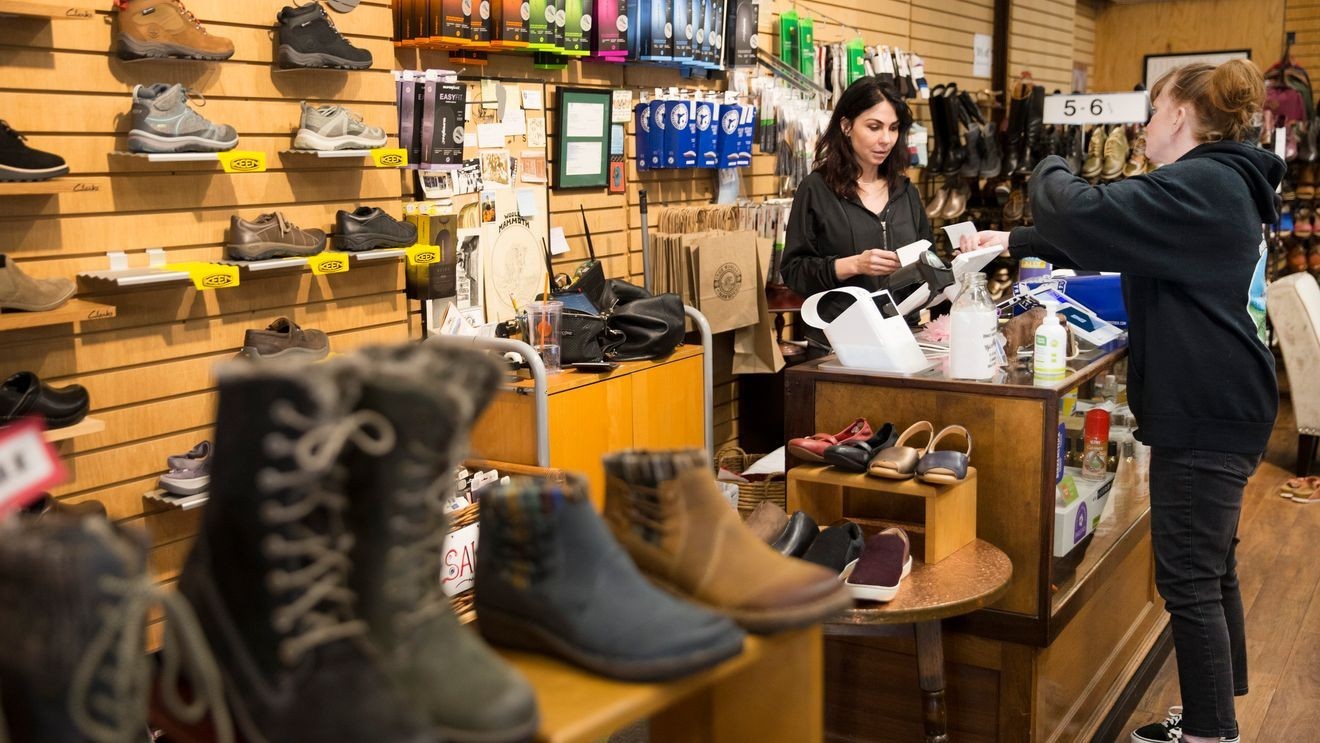When Matsukane Imai was a child, summer meant escaping the bustle of Tokyo and heading to his family’s traditional home in Okaya, a quiet city in Nagano Prefecture, Japan.
He remembers those days filled with simple joys, like digging in the dirt in search of insects, watching fireflies over the rice paddies, and playing with fireworks.
Matsukane Imai.
Even his mother, Machiko Imai, now in her seventies, recalls spending her childhood at the two-story house, where the upper floor was once used for cultivating silkworms and weaving silk threads.
So when Machiko inherited the house from her father — Matsukane’s grandfather — after his passing in 2020 at the age of 103, they began thinking about how to honor the house’s legacy.
“It’s been in the family for generations. There was never a question of selling it,” Matsukane, 46, told Business Insider.
Preserving a centuries-old home
The sprawling property is over 200 years old and consists of a main house, two gardens, and several smaller outbuildings. It’s about two and a half hours outside Tokyo, either by car or by train.
The last time anyone lived there full-time was in the early 1900s, Matsukane said. But subsequent generations took care of the house, so the interiors were in good condition.
Moreover, the surrounding houses have been renovated into a more modern style. Their house is one of the few that have remained untouched, Machiko, a Japanese language teacher, told Business Insider.
It was an old friend of Matsukane — and a former student of Machiko’s — who suggested turning their ancestral home into a guesthouse. Both mother and son liked the idea.
“I wanted to share that feeling of being in a traditional Japanese home with foreign visitors, or even Japanese visitors, since they’re kind of rare,” Machiko said.
The renovation was a huge undertaking that took about three years, although the first year was mainly clearing out all the items that had been kept in storage over the decades.
“We had to ask the antique dealers to come and look at and appraise it,” Matsukane said.
Among the items they kept for the guesthouse were a dining table that had been in the family since at least Machiko’s grandparents’ time, and an old silk-weaving loom, now displayed as a piece of the home’s history.
They worked with local architects and builders to renovate the home, adding features such as a modern kitchen and a hinoki-wood bath.
They applied for a government subsidy designed to promote tourism and urban development by utilizing historical resources, such as traditional houses like theirs. Although they declined to share specifics, Matsukane said the support covered about a third of their costs.
In recent years, the Japanese government has encouraged tourism beyond major hot spots along the Golden Route, the classic Tokyo-Kyoto-Osaka circuit.
In 2023, it introduced the Tourism Nation Promotion Basic Plan, which set goals such as encouraging more international visitors to spend time in regional Japan.
Those efforts come as the country sees record-breaking tourism: Japan welcomed 36.8 million visitors in 2024, the highest total since 1964, per data from the National Tourism Organization. Tokyo saw foreign tourist arrivals jump 26.9% from the year before, while Kyoto also hit a record with 10.88 million international visitors.
Steeped in history and tranquility
The guesthouse officially opened in July and can accommodate up to 10 guests. Rates start at $350 per night per guest for a minimum two-night stay on Airbnb.
Although it’s tucked away in a residential area, there are stores and even a mall nearby. The nearest train station is about a 10-minute drive.
“But the property is large enough that if you’re inside the house, it feels like you’re not in a city,” Matsukane said.
Living in Tokyo meant they couldn’t manage the guesthouse themselves, so one of the challenges was finding someone to handle operations and guest turnover, Matsukane said.
In the end, Matsukane partnered with a boutique hotel operator in Matsumoto, a larger city about 30 minutes away, who agreed to manage the property.
“I think our first real guest was someone that they introduced because they had overbooked,” Matsukane said.
Managing the guesthouse through an operator is a different experience from running it on their own.
For instance, when a family of five stayed at the guesthouse over Obon, a Buddhist festival in Japan, Matsukane arranged for Japanese toys and a note to be placed in the room for their two sons. The operators obliged but later told him that such gestures would count as extra services if done regularly.
“When you’re running your own place, you can do whatever you want. You do it your style and that’s the emotion you put into it,” he said. “But when you scale up these businesses and you have someone else doing it, you have to give them a playbook — or they give us a playbook that we try and follow.”
One thing that came as a surprise was the amount of foot traffic the guesthouse has received.
Many locals choose to stop by in person to check out the property, often saying the house would be perfect for their visiting relatives, Machiko added.
With such a rich heritage behind the house, Matsukane says he and his mom have treated the place like a living museum, adding placards to explain each room’s original purpose.
In the master bedroom, for instance, they lined part of the walls with locally sourced silkworm silk, a nod to its past and a way to support the local economy, he said.
Though the property primarily serves as a guesthouse, Matsukane continues to spend occasional weekends there with his family during off-peak season.
“I’ve probably stayed two, three times now since we opened. This has allowed my family to get out of Tokyo for some fresh air and allowed me to do minor upgrades and fixes around the house and make it even more hospitable,” he said.
Looking back, Matsukane says that restoring the house has been fun and deeply meaningful for his mother and him.
“I would say this has been a labor of love,” Matsukane said.
Do you have a story to share about building an Airbnb or your dream home in Asia? Contact this reporter at agoh@businessinsider.com.








